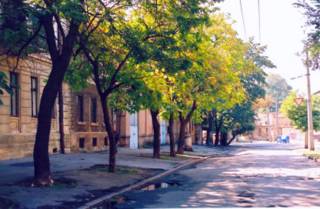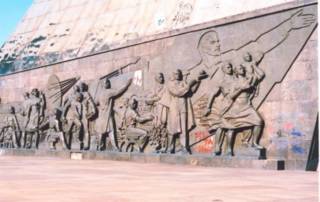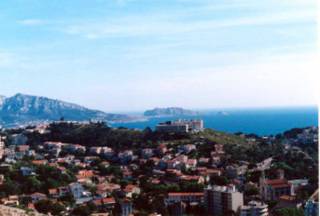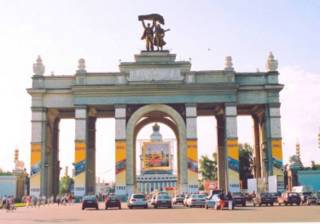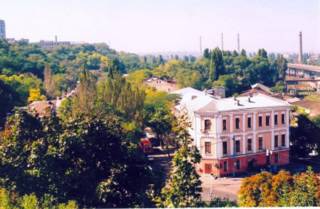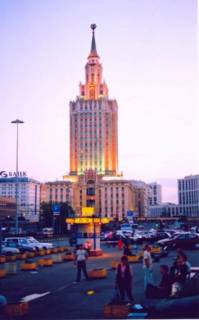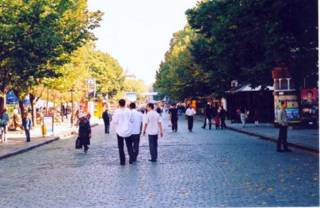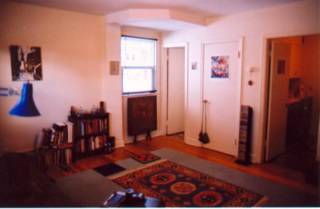Odessa, Ukraine


Пропаганда существует везде. В течение 23 года я родился и воспытивал в Канаде. Большинство жизни было в периоде Холодной Войны а поэтому я обычно только видел одну сторону о жизни СССРа. Это не был мой свободный выбор, в свободной Канаде или в США, так видеть. Я вообще только смотрел много плохих видов трудных положенией в СССРе по телевизору а не верил я, что всё по телевизору правильно и реально было. Я понял, и понимаю, что новости и так далее более как фильм а только есть всегда короткий вид автора. Ну, не было бы возможно смортеть дгугие виды. А потом я изучал экономику на западе а конечно там написанно в книгах что ничего в социализме работало и люды в социальных странах не могут строить дома, и поезды не могут идти. Поэтому когда я приехал в Бывший Советский Союз 6 лет тому назад я совсем не узнал как всё существует в реалности. Конечно, как я подумал, было много бедных людей, точно как я прочитал на Западе. Тоже было мало магазинов как на Западе прочитал, и очередь чтобы получить маленькую зарплату мне был дальше чем я раньше прочитал. Ну, мне кажется сейчас что я вижу такие ситуации почти везде – бедность – это бедность – и не хороша – и было бы лучше для всех в мире если у нас было бы меньше бедности везде. Это мне безразница если это Канадский бедный человек или Кыргизкий. Это не как бы бедность по Кыргизки хороша и по Канадски плоха!
Что я не видел по телевизору на Западе мне было важно (не хотел бы написать более). Я не узнал, что много парков здесь есть, поезды идут вообще вовремя и они прикрасны. Не узнал я, что продукты и фрукты на базарах лучше, более естественно (от природы и не от лаборатории), и есть санатории, аптеки, медисинские услуги, высше качество образование иностранных языков, и. т. д. Конечно, наша пропаганда на Западе никогда была такая – всё на Западе должно было быть лучше чем всё на Востоке!! Правилно или неправильно – это не роль пропаганды на Западе или в любой другой стране.
Сравнение стран лучше без пропаганды! Все пропаганды могут соединяться к мусору.
Представьте себе, есть две страны в мире – например страна «З» и страна «В». Оба страны имеет одинаковый валовой доход и одинаковый доход на душу населения. Конечно даход человека важен и жизнь хуже было бы без денег. Жизнь без гроша – как я могу написать, что это нормально? Я только могу так говорить если я богаты и это другой человек, который бедный. Кроме этого, не возможно так говорить. Ну, доход только один качественный фактор хорошего жизни. Представьте себе дальше что в стране «В», то есть где меры дохода одинаковый с уровеным в стране «З», есть тоже парки, красивый язык, приятные люды, красивый город, безплатный вход в парки и в университеты и. т. д. Ну, теперь, доход одинаковый, но качество жизни – где лучше? Где вы хотели бы жить? В стране «З» или в «В». Это возможно, что сейчас в мире, в двух странах есть одинаковый доход, ну есть большая разница кроме этого. В первом делом, качество жизни зависет от дохода, но не только. А в СССР, это надо всегда, когда мы думаем о реформах, считать другие источники благосостояния. Во вторых, я могу спрашивать так: если вам нравится жить в стране «В», где доход одинаковый, но есть парки и.т.д., сколько низше зарплата могла бы? Это, в конце концов, возможно строить хорошое объшество, где люды хотять жить, но получают они по меньше. Я надеюсь, что в переходном периоде, люды не забывают что у них есть много парков, и других польезных источников благосостояние для всех. Конечно тоже надеюсь, что зарплата была бы высше всем.


